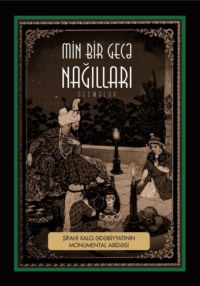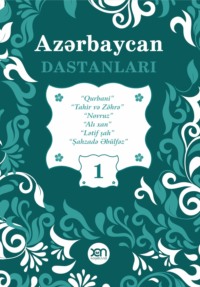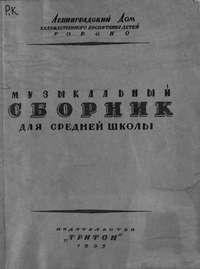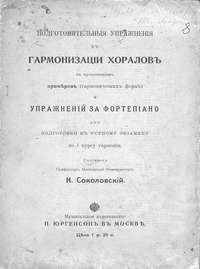 полная версия
полная версияA plain and literal translation of the Arabian nights entertainments, now entituled The Book of the Thousand Nights and a Night, Volume 2 (of 17)
Then he redoubled his weeping, and the Fireman said to him, "Weep not, but rather praise Allah for safety and recovery." Asked Zau al-Makan, "How far is it hence to Damascus?" Answered the other, "Six days' journey." Then quoth Zau al-Makan, "Wilt thou send me thither?" "O my lord," quoth the Stoker, "how can I allow thee to go alone, and thou a youth and a stranger to boot? If thou would journey to Damascus, I am one who will go with thee; and if my wife will listen to and obey me and accompany me, I will take up my abode there; for it is no light matter to part with thee." Then said he to his wife, "Wilt thou travel with me to Damascus of Syria or wilt thou abide here, whilst I lead this my lord thither and return to thee? For he is bent upon going to Damascus of Syria and, by Allah, it is hard to me to part with him, and I fear for him from highway-men." Replied she, "I will go with you both;" and he rejoined, "Praised be Allah for accord, and we have said the last word!" Then he rose and selling all his own goods and his wife's gear – And Shahrazad perceived the dawn of day and ceased saying her permitted say.
Now when it was the Five-and-Fiftieth Night,She said, It hath reached me, O auspicious King, that the Fireman and his wife agreed with Zau al-Makan to travel with him Damascus-wards. Then the Stoker sold his goods and his wife's gear and bought a camel and hired an ass for Zau al-Makan; and they set out, and ceased not wayfaring for six days till they reached Damascus. And they arrived there towards eventide; when the Fireman went forth and, as was his wont, bought some meat and drink. They had dwelt but five days in Damascus, when his wife sickened and, after a short illness, was translated to the mercy of Almighty Allah. Her death was a heavy matter to Zau al-Makan, for he was grown used to her as she had tended him assiduously; and the Fireman grieved for her with excessive grief. Presently the Prince turned to the Stoker and finding him mourning, said to him, "Grieve not, for at this gate we must all go in." Replied he, "Allah make weal thy lot, O my son! Surely He will compensate us with His favours and cause our mourning to cease. What sayst thou, O my son, about our walking abroad to view Damascus and cheer thy spirits?" Replied Zau al-Makan, "Thy will is mine." So the Fireman arose and placed his hand in that of Zau al-Makan and the two walked on till they came to the stables of the Viceroy of Damascus, where they found camels laden with chests and carpets and brocaded stuffs, and horses ready saddled and Bactrian dromedaries, while Mamelukes and negro slaves and folk in a hubbub were running to and fro. Quoth Zau al-Makan, "I wonder to whom belong all these chattels and camels and stuffs!" So he asked one of the eunuchs, "Whither this dispatching?" and he answered, "These are presents sent by the Emir of Damascus to King Omar bin al-Nu'uman, with the tribute of Syria." Now when Zau al-Makan heard his father's name, his eyes brimmed over with tears, and he began repeating: —
Oh ye gone from the gaze of these lidded eyne, ✿ Ye whose sight in my spirit shall ever dwell!Your charms are gone, but this heart of me ✿ Hath no sweet, and no pleasures its sour dispel;If Allah's grace make us meet again, ✿ In long-drawn love-tale my love I'll tell.And when he had ended his verse, he wept and the Fireman said to him, "O my son, we hardly believed that thy health had returned;238 so take heart and do not weep, for I fear a relapse for thee." And he ceased not comforting and cheering him, whilst Zau al-Makan sighed and moaned over his strangerhood and separation from his sister and his family; and tears streamed from his eyes and he recited these couplets: —
Get thee provaunt in this world ere thou wend upon thy way; ✿ And know how surely Death descends thy life-lot to waylay:All thy worldly goods are pride and the painfullest repine; ✿ All thy worldly life is vexing of thy soul in vain display:Say is not worldly wone like a wanderer's place of rest, ✿ Where at night he "nakhs239" his camels and moves off at dawn of day?And he continued to weep and wail over his separation; whilst the Fireman also bewept the loss of his wife, yet ceased not to comfort Zau al-Makan till morning dawned. When the sun rose, he said to him, "Meseemeth thou yearnest for thy native land?" "Yes," replied Zau al-Makan, "and I can no longer tarry here; so I will commend thee to Allah's care and set out with these folk and journey with them, little by little, till I come to my motherland." Said the Stoker, "And I with thee; for of a truth I cannot bear to part with thee. I have done thee kindly service and I mean to complete it by tending thee on thy travel." At this, Zau al-Makan rejoiced and said, "Allah abundantly requite thee for me!" and was pleased with the idea of their travelling together. The Fireman at once went forth and bought another ass, selling the camel; and laid in his provaunt and said to Zau al-Makan, "This is for thee to ride by the way; and, when thou art weary of riding, thou canst dismount and walk." Said Zau al-Makan, "May Allah bless thee and aid me to requite thee! for verily thou hast dealt with me more lovingly than one with his brother." Then he waited till it was dark night, when he laid the provisions and baggage on that ass and set forth upon their journey. This much befel Zau al-Makan and the Fireman; but as regards what happened to his sister Nuzhat al-Zaman, when she left her brother in the Khan where they abode and, wrapped in the old camlet, went out to seek service with some one, that she might earn wherewithal to buy him the roast meat he longed for, she fared on, weeping and knowing not whither to go, whilst her mind was occupied with thoughts of her brother and of her family and her native land. So she implored Allah Almighty to do away with these calamities from them and began versifying: —
Dark falls the night and Passion comes sore pains to gar me dree, ✿ And pine upstirs those ceaseless pangs which work my tormentry,And cease not separation-flames my vitals to consume, ✿ And drives me on destruction-way this sorrow's ecstacy;And longing breeds me restlessness; desire for ever fires, ✿ And tears to all proclaim what I would keep in secrecy:No cunning shift is known to me a meeting to secure, ✿ That I may quit this sickly state, may cure my malady:The love which blazeth in my heart is fed with fancy-fuel, ✿ The lover from its hell of fire must bear Hell's agony!240O thou who blamest me for all befel me, 'tis enough, ✿ Patient I bear whatever wrote the Reed of Doom for me:By Love I swear I'll never be consoled, no, never more; ✿ I swear the oath of Love's own slaves who know no perjury:O Night, to chroniclers of Love the news of me declare; ✿ That sleep hath fed mine eyelids of thy knowledge witness bear!Then she walked on, weeping and turning right and left as she went, when behold, there espied her an old Badawi241 who had come into the town from the desert with wild Arabs other five. The old man took note of her and saw that she was lovely, but she had nothing on her head save a piece of camlet, and, marvelling at her beauty, he said to himself, "This charmer dazzleth men's wits but she is in squalid condition, and whether she be of the people of this city or she be a stranger, I needs must have her." So he followed her, little by little, till he met her face to face and stopped the way before her in a narrow lane, and called out to her, asking her case, and said, "Tell me, O my little daughter! art thou a free-woman or a slave?" When she heard this, she said to him, "By thy life, do not add to my sorrows!" Quoth he, "Allah hath blessed me with six daughters, of whom five died and only one is left me, the youngest of all; and I came to ask thee if thou be of the folk of this city or a stranger; that I might take thee and carry thee to her, to bear her company so as to divert her from pining for her sisters. If thou have no kith and kin, I will make thee as one of them and thou and she shall be as my two children." Nuzhat al-Zaman bowed her head in bashfulness when she heard what he said and communed with herself, "Haply I may trust myself to this old man." Then she said to him, "O nuncle, I am a maiden of the Arabs and a stranger and I have a sick brother; but I will go with thee to thy daughter on one condition, which is, that I may spend only the day with her and at night may return to my brother. If thou strike this bargain I will fare with thee, for I am a stranger and I was high in honour among my tribe, and I awoke one morning to find myself vile and abject. I came with my brother from the land of Al-Hijaz and I fear lest he know not where I am." When the Badawi heard this, he said to himself, "By Allah, I have got my desire!" Then he turned to her and replied, "There shall none be dearer to me than thou; I wish thee only to bear my daughter company by day and thou shalt go to thy brother at earliest nightfall. Or, if thou wilt, bring him over to dwell with us." And the Badawi ceased not to console her heart and coax her, till she trusted in him and agreed to serve him. Then he walked on before her and, when she followed him, he winked to his men to go in advance and harness the dromedaries and load them with their packs and place upon them water and provisions, ready for setting out as soon as he should come up with the camels. Now this Badawi was a base-born churl, a highway thief and a traitor to the friend he held most lief, a rogue in grain, past master of plots and chicane. He had no daughter and no son and was only passing through the town when, by the decree of the Decreer, he fell in with this unhappy one. And he ceased not to hold her in converse on the highway till they came without the city of Jerusalem and, when outside, he joined his companions and found they had made ready the dromedaries. So the Badawi mounted a camel, having seated Nuzhat al-Zaman behind him and they rode on all night. Then she knew that the Badawi's proposal was a snare and that he had tricked her; and she continued weeping and crying out the whole night long, while they journeyed on making for the mountains, in fear any should see them. Now when it was near dawn, they dismounted from their dromedaries and the Badawi came up to Nuzhat al-Zaman and said to her, "O city-strumpet, what is this weeping? By Allah, an thou hold not thy peace, I will beat thee to death, O thou town-filth!" When she heard this she loathed life and longed for death; so she turned to him and said, "O accursed old man, O gray-beard of hell, how have I trusted thee and thou hast played me false, and now thou wouldst torture me?" When he heard her reply he cried out, "O lazy baggage, dost thou dare to bandy words with me?" And he stood up to her and beat her with a whip, saying, "An thou hold not thy peace, I will kill thee!" So she was silent awhile, then she called to mind her brother and the happy estate she had been in and she shed tears secretly. Next day, she turned to the Badawi and said to him, "How couldst thou play me this trick and lure me into these bald and stony mountains, and what is thy design with me?" When he heard her words he hardened his heart and said to her, "O lazy baggage of ill-omen and insolent! wilt thou bandy words with me?" and he took the whip and came down with it on her back till she felt faint. Then she bowed down over his feet and kissed242 them; and he left beating her and began reviling her and said, "By the rights of my bonnet,243 if I see or hear thee weeping, I will cut out thy tongue and stuff it up thy coynte, O thou city-filth!" So she was silent and made him no reply, for the beating pained her; but sat down with her arms round her knees and, bowing her head upon her collar, began to look into her case and her abasement after her lot of high honour; and the beating she had endured; and she called to mind her brother and his sickness and forlorn condition, and how they were both strangers in a far country, which drave her tears down her cheeks and she wept silently and began repeating: —
Time hath for his wont to upraise and debase, ✿ Nor is lasting condition for human race:In this world each thing hath appointed turn; ✿ Nor may man transgress his determined place:How long these perils and woes? Ah woe ✿ For a life, all woeful in parlous case!Allah bless not the days which have laid me low ✿ I' the world, with disgrace after so much grace!My wish is baffled, my hopes cast down, ✿ And distance forbids me to greet his face:O thou who passeth that dear one's door, ✿ Say for me, these tears shall flow evermore!When she had finished her verses, the Badawi came up to her and, taking compassion on her, bespoke her kindly and wiped away her tears. Then he gave her a barley-scone and said, "I love not one who answereth at times when I am in wrath: so henceforth give me no more of these impertinent words and I will sell thee to a good man like myself, who will do well with thee, even as I have done." "Yes; whatso thou doest is right," answered she; and when the night was longsome upon her and hunger burnt her, she ate very little of that barley bread. In the middle of the night the Badawi gave orders for departure – And Shahrazad perceived the dawn of day and ceased saying her permitted say.
Now when it was the Six-and-Fiftieth NightShe said, It hath reached me, O auspicious King, that when the Badawi gave the barley scone to Nuzhat al-Zaman and promised he would sell her to a good man like himself, she replied, "Whatso thou doest is right!" and, about midnight, when hunger burned her,244 she ate a very little of that barley-bread and the Badawi ordered his party to set out; so they loaded their loads and he mounted a camel setting Nuzhat al-Zaman behind him. Then they journeyed and ceased not journeying for three days, till they entered the city of Damascus and alighted at the Sultan's Khan, hard by the Viceroy's Gate. Now she had lost her colour by grief and the fatigue of such travelling, and she ceased not to weep over her misfortunes. So the Badawi came up to her and said, "O thou city-filth, by the right of my bonnet, if thou leave not this weeping, I will sell thee to none but a Jew!" Then he arose and took her by the hand and carried her to a chamber, and walked off to the bazar, and he went round to the merchants who dealt in slave-girls, and began to parley with them, saying, "I have brought a slave-girl whose brother fell ill, and I sent him to my people about Jerusalem, that they might tend him till he is cured. As for her I want to sell her, but after the dog her brother fell sick, the separation from him was grievous to her, and since then she doth nothing but weep, and now I wish that whoso is minded to buy her of me speak softly to her and say: – Thy brother is with me in Jerusalem ill; and I will be easy with him about her price." Then one of the merchants came up to him and asked, "How old is she?" He answered "She is a virgin, just come to marriageable age, and she is endowed with sense and breeding and wit and beauty and loveliness. But from the day I sent her brother to Jerusalem, her heart hath been yearning for him, so that her beauty is fallen away and her value lessened." Now when the merchant heard this, he set forth with the Badawi and said, "O Shaykh245 of the Arabs, I will go with thee and buy of thee this girl whom thou praisest so highly for wit and manners and beauty and loveliness; and I will pay thee her price but it must be upon conditions which if thou accept, I will give thee ready money, and if thou accept not I will return her to thee." Quoth the Badawi, "An thou wilt, take her up to the Sultan Sharrkan, son of Omar bin al-Nu'uman lord of Baghdad and of the land of Khorasan, and condition me any conditions thou likest, for when thou hast brought her before King Sharrkan, haply she will please him, and he will pay thee her price and a good profit for thyself to boot." Rejoined the merchant, "It happens that I have just now something to ask from him, and it is this that he write me an order upon the office, exempting me from custom-dues and also that he write me a letter of recommendation to his father, King Omar bin al-Nu'uman. So if he take the girl, I will weigh246 thee out her price at once." "I agree with thee to this condition," answered the Badawi. So they returned together to the place where Nuzhat al-Zaman was and the wild Arab stood at the chamber door and called out, saying, "O Nájiyah247!" which was the name wherewith he had named her. When she heard him, she wept and made no answer. Then he turned to the merchant and said to him, "There she sitteth; go to her and look at her and speak to her kindly as I enjoined thee." So the trader went up to her in courteous wise and saw that she was wondrous beautiful and loveable, especially as she knew the Arabic tongue; and he said to the Badawi, "If she be even as thou saidest, I shall get of the Sultan what I will for her." Then he bespake her, "Peace be on thee, my little maid! How art thou?" She turned to him and replied, "This also was registered in the Book of Destiny." Then she looked at him and, seeing him to be a man of respectable semblance with a handsome face, she said to herself, "I believe this one cometh to buy me;" and she continued, "If I hold aloof from him, I shall abide with my tyrant and he will do me to death with beating. In any case, this person is handsome of face and maketh me hope for better treatment from him than from my brute of a Badawi. May be he cometh only to hear me talk; so I will give him a fair answer." All this while her eyes were fixed on the ground; then she raised them to him and said in a sweet voice, "And upon thee be peace, O my lord, and Allah's mercy and His benediction!248 This is what is commanded of the Prophet, whom Allah bless and preserve! As for thine enquiry how I am, if thou wouldst know my case, it is such as thou wouldst not wish but to thy foe." And she held her peace. When the merchant heard what she said, his fancy took wings for delight in her and, turning to the Badawi, he asked him, "What is her price, for indeed she is noble?" Thereupon the Badawi waxed angry and answered, "Thou wilt turn me the girl's head with this talk! Why dost thou say that she is noble,249 while she is of the scum of slave-girls and of the refuse of folk? I will not sell her to thee!" When the merchant heard this, he knew the man to be weak of wits and said to him, "Calm thyself, for I will buy her of thee with these blemishes thou mentionest." "And how much wilt thou give me for her?" enquired the Badawi. Replied the merchant, "Name thy price for her: none should name the son save his sire." Rejoined the Badawi, "None shall name it but thou thyself." Quoth the merchant to himself, "This wildling is a rudesby and a maggotty head. By Allah, I cannot tell her price, for she hath won my heart with her fair speech and good looks; and, if she can read and write, it will be complete fair luck to her and to her purchaser. But this Badawi does not know her worth." Then he turned and said to him, "O Shaykh of the Arabs, I will give thee in ready money, clear of the tax and the Sultan's dues, two hundred gold pieces." Now when the Badawi heard this, he flew into a violent rage and cried at the merchant, saying, "Get up and go thy ways! By Allah, wert thou to offer me two hundred dinars for the bit of camlet she weareth, I would not sell it to thee. And now I will not sell her, but will keep her by me, to pasture the camels and grind my grist." And he cried out to her, saying, "Come here, thou stinkard! I will not sell thee." Then he turned to the merchant and said to him, "I used to think thee a man of judgment; but, by the right of my bonnet, if thou begone not from me, I will let thee hear what shall not please thee!" Quoth the merchant to himself, "Of a truth this Badawi is mad and knoweth not her value, and I will say no more to him about her price at the present time; for by Allah, were he a man of sense, he would not say: – By the rights of my bonnet! By the Almighty, she is worth the kingdom of the Chosroes and I have not her price by me, but if he ask even more, I will give him what he will, though it be all my goods." Then he turned and said to him, "O Shaykh of the Arabs, take patience and calm thyself and tell me what clothes she hath with thee?" Cried the Badawi, "And what hath the baggage to do with clothes? By Allah, this camlet in which she is wrapped is ample for her." "With thy leave," said the merchant, "I will unveil her face and examine her even as folk examine slave-girls whom they think of buying."250 Replied the other, "Up and do what thou wilt and Allah keep thy youth! Examine her outside and inside and, if thou wilt, strip off her clothes and look at her when she is naked." Quoth the trader, "Allah forfend! I will look at naught save her face."251 Then he went up to her and was put to shame by her beauty and loveliness, – And Shahrazad perceived the dawn of day and ceased to say her permitted say.
Now when it was the Fifty-seventh Night,She said, It hath reached me, O auspicious King, that the merchant went up to Nuzhat al-Zaman and was put to shame by her beauty and loveliness, so he sat by her side and asked her, "O my mistress, what is thy name?" She answered, "Dost thou ask what is my name this day or what it was before this day?" Thereupon the merchant enquired, "Hast thou then two names: to day's and yesterday's?" "Yes," replied she, "my name in the past was Nuzhat al-Zaman, the Delight of the Age; but my name at this present is Ghussat252 al-Zaman, the Despight of the Age." When the merchant heard this his eyes brimmed over with tears and quoth he to her, "Hast thou not a sick brother?" "Ay by Allah, O my lord, I have," quoth she, "but fortune hath parted me and him and he lieth sick in Jerusalem." The merchants head was confounded at the sweetness of her speech and he said to himself, "Verily, the Badawi spake the truth of her." Then she called to mind her brother and his sickness and his strangerhood and her separation from him in his hour of weakness and her not knowing what had befallen him; and she thought of all that had happened to her with the Badawi and of her severance from her mother and father and native land; and the tears coursed down her cheeks and fast as they started they dropped; and she began reciting: —
Allah, where'er thou be, His aid impart ✿ To thee, who distant dwellest in my heart!Allah be near thee how so far thou fare; ✿ Ward off all shifts of Time, all dangers thwart!Mine eyes are desolate for thy vanisht sight, ✿ And start my tears – ah me, how fast they start!Would Heaven I kenned what quarter or what land ✿ Homes thee, and in what house and tribe thou art;An fount of life thou drain in greenth of rose, ✿ While drink I tear-drops for my sole desart?An thou 'joy slumber in those hours, when I ✿ Feel 'twixt my side and couch coals' burning smart?All things were easy save to part from thee, ✿ For my sad heart this grief is hard to dree.When the merchant heard her verses, he wept and put out his hand to wipe away the tears from her cheeks; but she let down her veil over her face, saying, "Heaven forbid, O my lord!"253 Then the Badawi, who was sitting at a little distance watching them, saw her cover her face from the merchant while about to wipe the tears from her cheeks; and he concluded that she would have hindered him from handling her: so he rose and running to her, dealt her, with a camel's halter he had in his hand, such a blow on the shoulders that she fell to the ground on her face. Her eyebrow struck a stone which cut it open, and the blood streamed down her cheeks; whereupon she screamed a loud scream and felt faint and wept bitterly. The merchant was moved to tears for her and said in himself, "There is no help for it but that I buy this damsel, though at her weight in gold, and free her from this tyrant." And he began to revile the Badawi whilst Nuzhat al-Zaman lay insensible. When she came to herself, she wiped away the tears and blood from her face; and she bound up her head: then, raising her glance to heaven, she besought her Lord with a sorrowful heart and began repeating: —
And pity one who erst in honour throve, ✿ And now is fallen into sore disgrace.She weeps and bathes her cheeks with railing tears, ✿ And asks "What cure can meet this fatal case?"When she had ended her verse, she turned to the merchant and said in an undertone, "By the Almighty, do not leave me with a tyrant who knoweth not Allah the Most High! If I pass this night in his place, I shall kill myself with my own hand: save me from him, so Allah save thee from Gehenna-fire." Then quoth the merchant to the Badawi, "O Shaykh of the Arabs, this slave is none of thine affair; so do thou sell her to me for what thou wilt." "Take her," quoth the Badawi, "and pay me down her price, or I will carry her back to the camp and there set her to feed the camels and gather their dung."254 Said the merchant, "I will give thee fifty thousand dinars for her." "Allah will open!"255 replied the Badawi. "Seventy thousand," said the merchant. "Allah will open!" repeated the Badawi: "this is not the capital spent upon her, for she hath eaten with me barley-bread to the value of ninety thousand gold pieces." The merchant rejoined, "Thou and thine and all thy tribe in the length of your lives have not eaten a thousand ducats' worth of barley; but I will say thee one word, wherewith if thou be not satisfied, I will set the Viceroy of Damascus on thee and he will take her from thee by force." The Badawi continued, "Say on!" "An hundred thousand," quoth the merchant. "I have sold her to thee at that price," answered the Badawi; "I shall be able to buy salt with her." The merchant laughed and, going to his lodgings, brought the money and put it into the hand of the Badawi, who took it and made off, saying to himself, "Needs must I go to Jerusalem where, haply, I shall happen on her brother, and I will bring him here and sell him also." So he mounted and journeyed till he arrived at Jerusalem, where he went to the Khan and asked for Zau al-Makan, but could not find him. Such was the case with him; but for what regards the merchant and Nuzhat al-Zaman, when he took her he threw some of his clothes over her and carried her to his lodgings – And Shahrazad perceived the dawn of day and ceased saying her permitted say.









